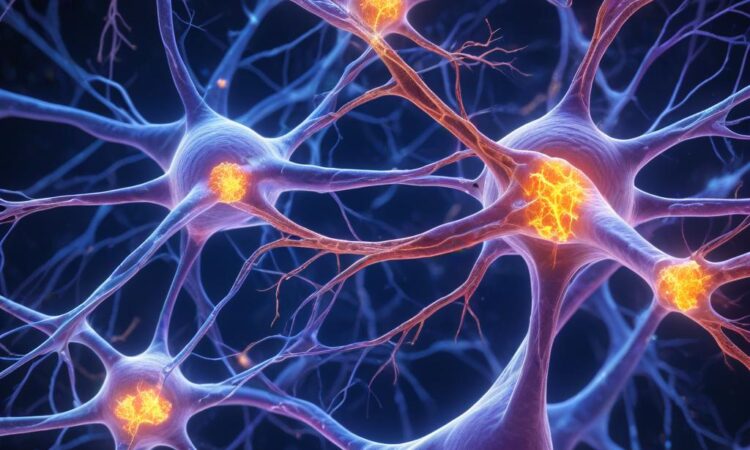Advances in Alzheimer’s Disease Research: Updates on new research findings related to the causes, prevention, and treatment of Alzheimer’s disease. (Source: Alzheimer’s Association)
Alzheimer’s disease, a progressive neurodegenerative disorder, remains a significant global health challenge. Recent years have witnessed a surge in research activity, leading to significant advancements in our understanding of its causes, potential preventative measures, and therapeutic approaches. This article provides an overview of the latest findings, highlighting key breakthroughs and ongoing investigations.
Understanding the Causes of Alzheimer’s Disease
The precise etiology of Alzheimer’s disease is complex and not fully understood, but research points to a combination of genetic and environmental factors. Genetic predisposition plays a significant role, with certain gene mutations increasing the risk of developing the disease. However, the majority of cases are sporadic, meaning they do not have a clear family history. Research continues to identify specific genes and genetic variations associated with increased risk, offering potential targets for future therapies.
Environmental factors also contribute significantly. Studies suggest that lifestyle choices, such as diet, exercise, and cognitive stimulation, may influence the risk of developing Alzheimer’s disease. Factors like cardiovascular health, exposure to certain toxins, and head injuries have also been implicated. Ongoing research is investigating the intricate interplay between genetic and environmental factors to better understand the disease’s pathogenesis.
Amyloid Beta and Tau Proteins: Central Players in Alzheimer’s Pathology
Two key hallmarks of Alzheimer’s disease are the abnormal accumulation of amyloid-beta plaques and neurofibrillary tangles composed of tau protein. Amyloid-beta plaques, clumps of misfolded protein fragments, disrupt communication between nerve cells. Tau protein, normally involved in stabilizing microtubules within neurons, becomes abnormally phosphorylated, leading to the formation of neurofibrillary tangles that damage and ultimately kill neurons.
Research into the mechanisms by which amyloid-beta and tau proteins accumulate and cause neuronal damage is ongoing. Scientists are exploring various therapeutic strategies targeting these proteins, including antibodies designed to clear amyloid-beta plaques from the brain and compounds aimed at preventing tau protein aggregation. Clinical trials testing these therapies are underway, and results are eagerly awaited.
Neuroinflammation: A Critical Factor in Disease Progression
Neuroinflammation, characterized by the activation of immune cells within the brain, plays a significant role in the progression of Alzheimer’s disease. This chronic inflammatory response can exacerbate neuronal damage and contribute to cognitive decline. Studies are investigating the mechanisms underlying neuroinflammation in Alzheimer’s and exploring potential therapeutic interventions to modulate the inflammatory response.
Anti-inflammatory drugs are being explored as potential treatments, and some studies have shown promising results. However, more research is needed to determine the optimal anti-inflammatory strategies and their efficacy in slowing or preventing disease progression.
Advances in Diagnostic Imaging and Biomarkers
Early and accurate diagnosis is crucial for effective management of Alzheimer’s disease. Advances in neuroimaging techniques, such as amyloid PET scans and tau PET scans, allow for in vivo detection of amyloid-beta plaques and tau tangles in the brain. These imaging techniques are improving the accuracy of diagnosis and enabling researchers to better understand the disease’s progression.
Researchers are also developing blood-based biomarkers that could potentially diagnose Alzheimer’s disease earlier and less invasively. These biomarkers could revolutionize the diagnostic process, allowing for earlier intervention and potentially slowing disease progression.
Promising Therapeutic Strategies
Several promising therapeutic strategies are currently under investigation. These include:
- Anti-amyloid therapies: Antibodies designed to remove amyloid-beta plaques from the brain.
- Anti-tau therapies: Compounds aimed at preventing tau protein aggregation and reducing neuronal damage.
- Disease-modifying therapies: Drugs designed to slow or halt the progression of Alzheimer’s disease.
- Neuroprotective therapies: Agents that protect neurons from damage and death.
- Lifestyle interventions: Strategies focusing on diet, exercise, cognitive stimulation, and vascular health to reduce risk and potentially slow progression.
Clinical trials are evaluating the safety and efficacy of these therapies. While some have shown promise, further research is needed to determine their long-term effects and to identify the optimal treatment strategies for individual patients.
The Role of Lifestyle Factors in Prevention
While genetic factors influence the risk of developing Alzheimer’s disease, lifestyle choices play a significant role in its prevention. Maintaining a healthy lifestyle, including regular physical exercise, a balanced diet, cognitive stimulation, and management of cardiovascular risk factors, can reduce the risk of developing the disease.
Studies have shown that regular physical activity can improve cognitive function and reduce the risk of dementia. A diet rich in fruits, vegetables, and healthy fats can also contribute to brain health. Engaging in mentally stimulating activities, such as reading, puzzles, and learning new skills, can help maintain cognitive function and protect against cognitive decline.
Managing cardiovascular risk factors, such as high blood pressure, high cholesterol, and diabetes, is also crucial. These conditions can increase the risk of vascular dementia, a type of dementia that shares similarities with Alzheimer’s disease. By addressing these risk factors, individuals can significantly reduce their overall risk of developing dementia.
Future Directions in Alzheimer’s Research
Research into Alzheimer’s disease is rapidly evolving. Scientists are employing advanced technologies, such as genomics, proteomics, and neuroimaging, to gain a deeper understanding of the disease’s mechanisms. This increased knowledge is paving the way for the development of novel diagnostic tools and more effective therapies.
The focus is shifting towards personalized medicine, with the goal of tailoring treatments to individual patients based on their genetic makeup and disease stage. This approach promises to improve the efficacy of therapies and enhance the quality of life for individuals with Alzheimer’s disease.
Continued investment in research is essential to accelerate progress in this field. Collaboration between researchers, clinicians, and patient advocacy groups is critical to overcome the challenges and ultimately find a cure for Alzheimer’s disease.
This information is for educational purposes only and should not be considered medical advice. Consult with a healthcare professional for any health concerns or before making any decisions related to your health or treatment.

